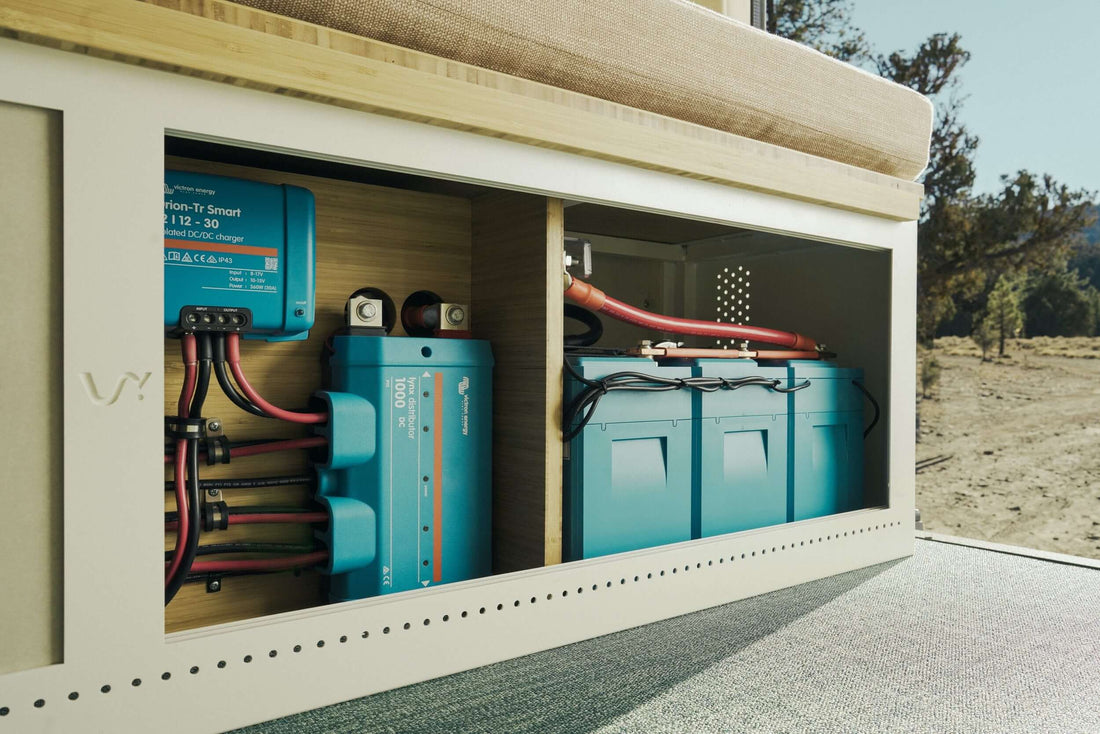Comparing 48-volt and 12-volt electrical systems involves considering their respective pros and cons. Here are some factors to consider for each system:
Pros of a 48-volt electrical system:
1. Power capacity: A 48-volt system can handle higher power demands more efficiently than a 12-volt system. This can be advantageous for applications that require significant power, such as electric vehicles or large-scale solar systems.
2. Reduced wiring size: Due to the lower current requirements at higher voltages, a 48-volt system allows for the use of smaller-gauge wiring, resulting in cost savings and reduced weight.
3. Voltage drop reduction: With higher voltage, voltage drop over long wire runs is reduced, enabling more effective power distribution and minimizing power loss.
4. Electric motor performance: Electric motors often operate more efficiently at higher voltages, resulting in improved performance and reduced energy consumption.
Cons of a 48-volt electrical system:
1. Limited availability of components: Compared to the extensive availability of 12-volt components, the selection of 48-volt components may be more limited, potentially resulting in higher costs and reduced options when designing or upgrading systems.
2. Safety concerns: Higher voltages, such as 48 volts, pose a higher risk of electric shock and safety hazards. Proper safety precautions and adherence to electrical codes and standards are crucial.
3. Complexity: Implementing and maintaining a 48-volt electrical system may require additional technical knowledge, specialized components, and more sophisticated equipment compared to a 12-volt system.
4. Compatibility: Existing devices and equipment designed for 12-volt systems may not be compatible with a 48-volt system. Adapting or replacing devices to work with the higher voltage may be necessary.
Pros of a 12-volt electrical system:
1. Widely available components: The availability of a wide range of 12-volt components is a significant advantage, making it easier to find compatible devices, accessories, and replacements.
2. Established standards: 12-volt systems are well-established in various industries, such as automotive and marine, resulting in standardized wiring, connectors, and equipment, simplifying installation and maintenance.
3. Safety: While electrical safety precautions should always be followed, the lower voltage of a 12-volt system poses a reduced risk of electric shock compared to higher-voltage systems.
4. Simplicity: 12-volt systems are generally simpler to design, install, and troubleshoot, making them more accessible to DIY enthusiasts or those with basic electrical knowledge.
Cons of a 12-volt electrical system:
1. Power limitations: 12-volt systems have lower power capacity compared to higher voltage systems. They may struggle to meet the demands of power-hungry applications or large-scale installations.
2. Increased current requirements: Due to higher current requirements at lower voltages, 12-volt systems may require thicker and heavier wiring to handle the power demands, potentially increasing costs and installation complexities.
3. Voltage drop: With longer wire runs, voltage drop can be a concern in 12-volt systems. This may require additional measures, such as voltage boosters, to maintain adequate power at the end of the line.
When deciding between a 48-volt and 12-volt electrical system, it's important to consider the specific application, power requirements, availability of components, safety considerations, and installation/maintenance complexity.
:
Pros of a 48-volt electrical system:
1. Power capacity: A 48-volt system can handle higher power demands more efficiently than a 12-volt system. This can be advantageous for applications that require significant power, such as electric vehicles or large-scale solar systems.
2. Reduced wiring size: Due to the lower current requirements at higher voltages, a 48-volt system allows for the use of smaller-gauge wiring, resulting in cost savings and reduced weight.
3. Voltage drop reduction: With higher voltage, voltage drop over long wire runs is reduced, enabling more effective power distribution and minimizing power loss.
4. Electric motor performance: Electric motors often operate more efficiently at higher voltages, resulting in improved performance and reduced energy consumption.
Cons of a 48-volt electrical system:
1. Limited availability of components: Compared to the extensive availability of 12-volt components, the selection of 48-volt components may be more limited, potentially resulting in higher costs and reduced options when designing or upgrading systems.
2. Safety concerns: Higher voltages, such as 48 volts, pose a higher risk of electric shock and safety hazards. Proper safety precautions and adherence to electrical codes and standards are crucial.
3. Complexity: Implementing and maintaining a 48-volt electrical system may require additional technical knowledge, specialized components, and more sophisticated equipment compared to a 12-volt system.
4. Compatibility: Existing devices and equipment designed for 12-volt systems may not be compatible with a 48-volt system. Adapting or replacing devices to work with the higher voltage may be necessary.
Pros of a 12-volt electrical system:
1. Widely available components: The availability of a wide range of 12-volt components is a significant advantage, making it easier to find compatible devices, accessories, and replacements.
2. Established standards: 12-volt systems are well-established in various industries, such as automotive and marine, resulting in standardized wiring, connectors, and equipment, simplifying installation and maintenance.
3. Safety: While electrical safety precautions should always be followed, the lower voltage of a 12-volt system poses a reduced risk of electric shock compared to higher-voltage systems.
4. Simplicity: 12-volt systems are generally simpler to design, install, and troubleshoot, making them more accessible to DIY enthusiasts or those with basic electrical knowledge.
Cons of a 12-volt electrical system:
1. Power limitations: 12-volt systems have lower power capacity compared to higher voltage systems. They may struggle to meet the demands of power-hungry applications or large-scale installations.
2. Increased current requirements: Due to higher current requirements at lower voltages, 12-volt systems may require thicker and heavier wiring to handle the power demands, potentially increasing costs and installation complexities.
3. Voltage drop: With longer wire runs, voltage drop can be a concern in 12-volt systems. This may require additional measures, such as voltage boosters, to maintain adequate power at the end of the line.
When deciding between a 48-volt and 12-volt electrical system, it's important to consider the specific application, power requirements, availability of components, safety considerations, and installation/maintenance complexity.

